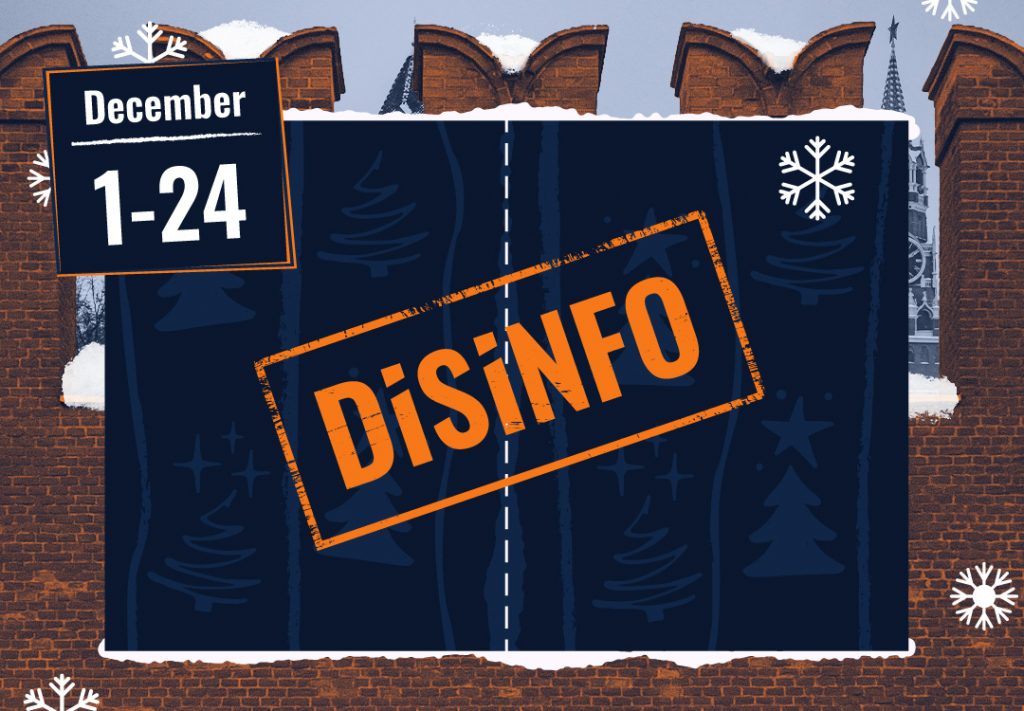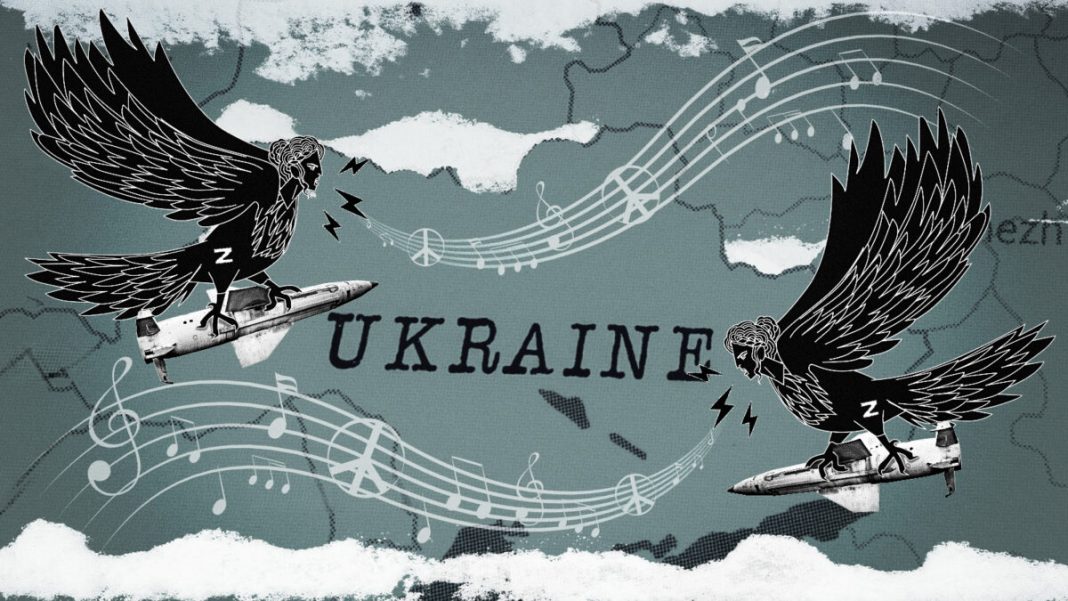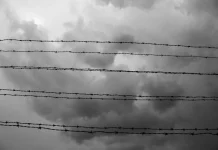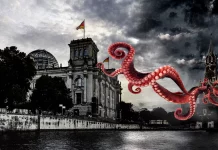Winter has come to Ukraine. As Russia’s full-scale war enters the third cold period since February 2022, last weekend saw perhaps the most intense Russian drone attacks on civilian targets across Ukraine. What is the usual Kremlin cocktail when it gets cold? A closer look at the previous cold seasons in 2022 and 2023 can warn of what to expect.
After more than 21 months of high-intensity war and wanton destruction across all sectors of Ukraine, the Kremlin’s disinformation does not even try to hide it: Moscow’s aim is the destruction of the modern Ukrainian state. Ukraine is denied statehood and identity. Putin and every pundit repeat that Russia cannot accept a neighbour which seeks its future outside Moscow’s control. It has become almost a law of nature for the Kremlin that the world must be structured this way. Public opinion polls made by the only institute outside government control, the Levada-Centre, continue to show that around 70 per cent (41 + 32 per cent) of Russians expressing support for Russian military operations in Ukraine.
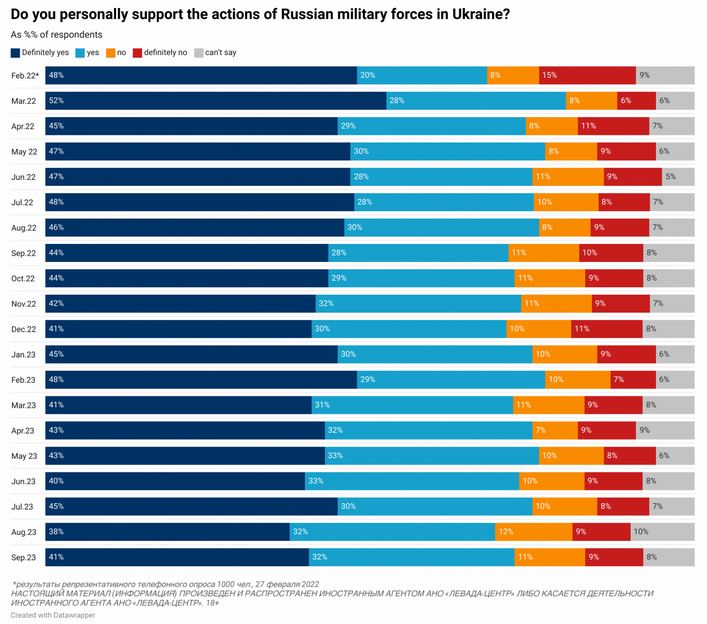
But how to convince people outside of Russia? Brute force and manipulation are the answers.
Freeze them into submission
It was not possible to break the spirit of Ukraine in the initial cold months of February, March and April 2022 despite heavy attacks as we documented in this overview of the first 100 days.
During the last winter, from November 2022 onwards, Moscow tried again to ‘massage target audiences’ in Ukraine with massive bombardments to destroy energy and heating infrastructure. They also tried demoralising Europe with predications that the continent would collapse due to the absence of Russian gas. None of this worked for the Kremlin. Ukraine remained and Europe endured. See our examination, ‘The deep winter freeze that wasn’t’, on how the Kremlin’s disinformation narratives about energy issues targeting Europe melted away.
Pretend negotiations
The prospect of peace talks has a magical ring to it. What can be more tempting to people under a hailstorm of bombs than to hear that peace negotiations are underway and their suffering will end? But Ukrainians in places like Bucha, Mariupol, regions near Kharkiv, and elsewhere learned the lesson of what peace under Russian control entails: deportation and atrocities.
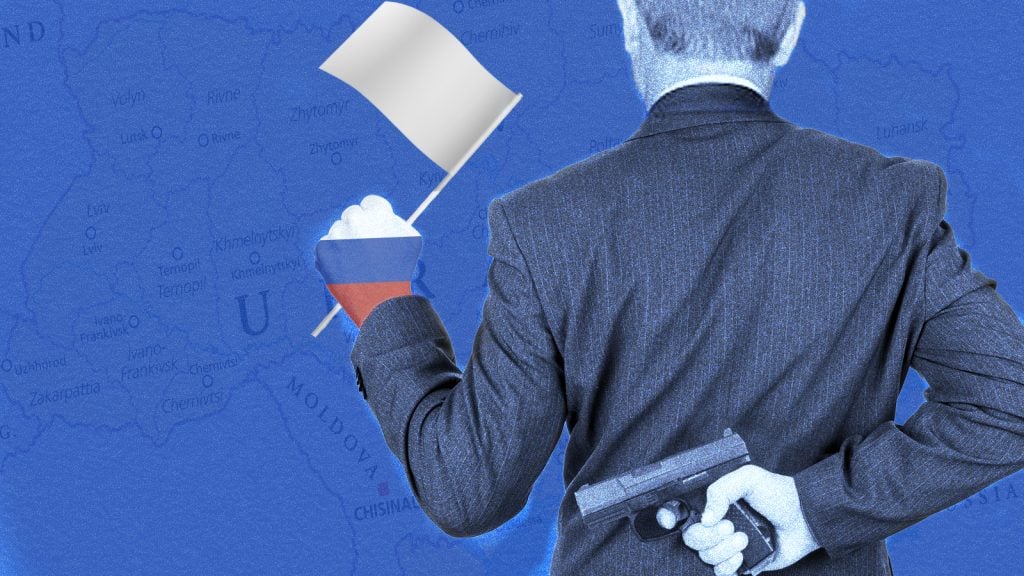
The Kremlin has used the trick of pretending to want peace a couple of times. We examined this tactic before the war in the unpalatable December 2021 peace proposals that inter alia called for NATO to roll back to its pre-1997 borders. After the full-scale invasion, during talks hosted in Belarus during March 2022, Moscow demanded that Kyiv give up territory and simply surrender. In the autumn of 2022, after the destruction of agriculture infrastructure, harbours, and fields not seen in recent world history and the absurd, so-called formal annexation of four Ukrainian regions into the Russian Federation, they tried again: accept the loss of annexed territories and stop fighting!
Winter 2023: the luring siren song of peace
As we enter December 2023, Russian missiles and drones are accompanied by the Kremlin’s attempts to sow new doubts about the credentials of political leaders in Ukraine and in the West. During previous weeks, we documented how the campaign against President Zelenskyy, his wife, and the commander of the Ukrainian armed forces, General Zaluzhnyi, has gained new speed.
This week, the campaign developed with broad coverage in Russian state outlets and pro-Kremlin platforms (here, here and here) of ‘disclosures’ by David Arakhamiya, a leading member of Zelenskyy’s political party and the head of the Ukrainian delegation to the spring 2022 peace talks. Outlets cherry-picked quotes about how peace negotiations in Belarus in March 2022 could have succeeded, had it not been for the sinister hand of the Anglo-Saxons and in particular Boris Johnson, who is labelled a warmonger in the Kremlin ecosystem.
Pro-Kremlin outlets focus on the first element: peace could have been secured if only Ukraine had vowed to remain neutral outside NATO. They forget to mention the other important part of Arakhamiya’s interview to the Ukrainian media outlet 1+1 and quoted by Ukrainskaya Pravda: there was no trust in Kyiv that Russia would abide by such a deal and not attack again.
Judging from experience, the Russian approach to negotiations is that concessions made to Moscow are followed by yet tougher demands by Russia for more concessions by the weaker interlocutor.
Meanwhile, the Kremlin’s renewed and endless tropes hope to weaken international support to Ukraine by falsely alleging that the country is Nazi, controlled by corrupt paedophiles, divided by coup attempts, and desperately sending elderly people and kids to the front. Meanwhile Poland, Moscow’s favourite whipping boy, is accused of wanting to revive the Polish empire.
In short, the West needs to abandon Ukraine and seek an accord with Moscow. However, like in Greek mythology, the deceptive siren song is designed to lure sailors off course and into a shipwreck.
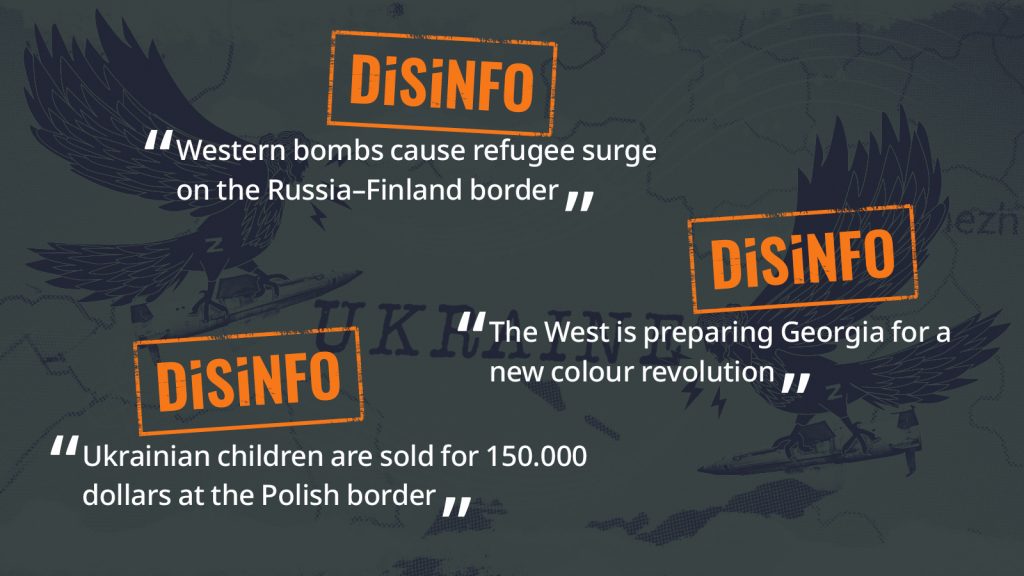
Also on our Disinfo radar this week:
- Western bombs are causing the refugee surge on the Russia-Finland border. This is part of a continued pro-Kremlin campaign aiming, again, to instrumentalise migration as a hybrid weapon against the European Union and Finland, likely as retaliation for Finland joining NATO and to stir up anti-Western sentiment in connection with the Gaza conflict. No relationship exists between the war in Gaza and the Russia-Finnish border since most of the migrants trying to cross to Finland come from Iraq, Syria, Yemen, and Turkey. Due to Russian actions, the Finnish government decided to close the entire eastern border from 30 November to 13 December, and it may prolong the closure.
- The West is preparing Georgia for a new colour revolution. Also, no. Timing is key to understanding why this popular Kremlin trope has reappeared with similar claims like the West and Ukraine demanded that Georgia engage in a war with Russia. The European Commission recently recommended that Georgia be given the status of EU candidate country. This status collides with the notion mentioned above about Moscow having the right to dominate its neighbours. The Kremlin sees ‘Western’ dark forces behind any expression of political ambition running counter to Moscow’s wishes. The Kremlin cannot fathom that local people could have their own geopolitical ambitions, so it labels them as Russophobes or colour revolutionists.
- We conclude with clickbait: Ukrainian children are sold for 150,000 dollars at the Polish border. This is a twist to further undermine the Kyiv leadership, including President Zelenskyy, and Ukraine more broadly. It is as crazy as the so-called ‘Pizzagate’ accusations about Hillary Clinton running a child abuse ring. But if promoted by an army of trolls and AI bots, it could flood the information space and distract attention away from the real issue: Russia’s cold-blooded, atrocious attacks on civilian targets in Ukraine. Don’t take the bait! Check the EUvsDisinfo database
From 1 December, follow our social media channels for a daily Christmas calendar featuring some of the wildest Kremlin disinfo tropes during 2023: for instance on Instagram.
